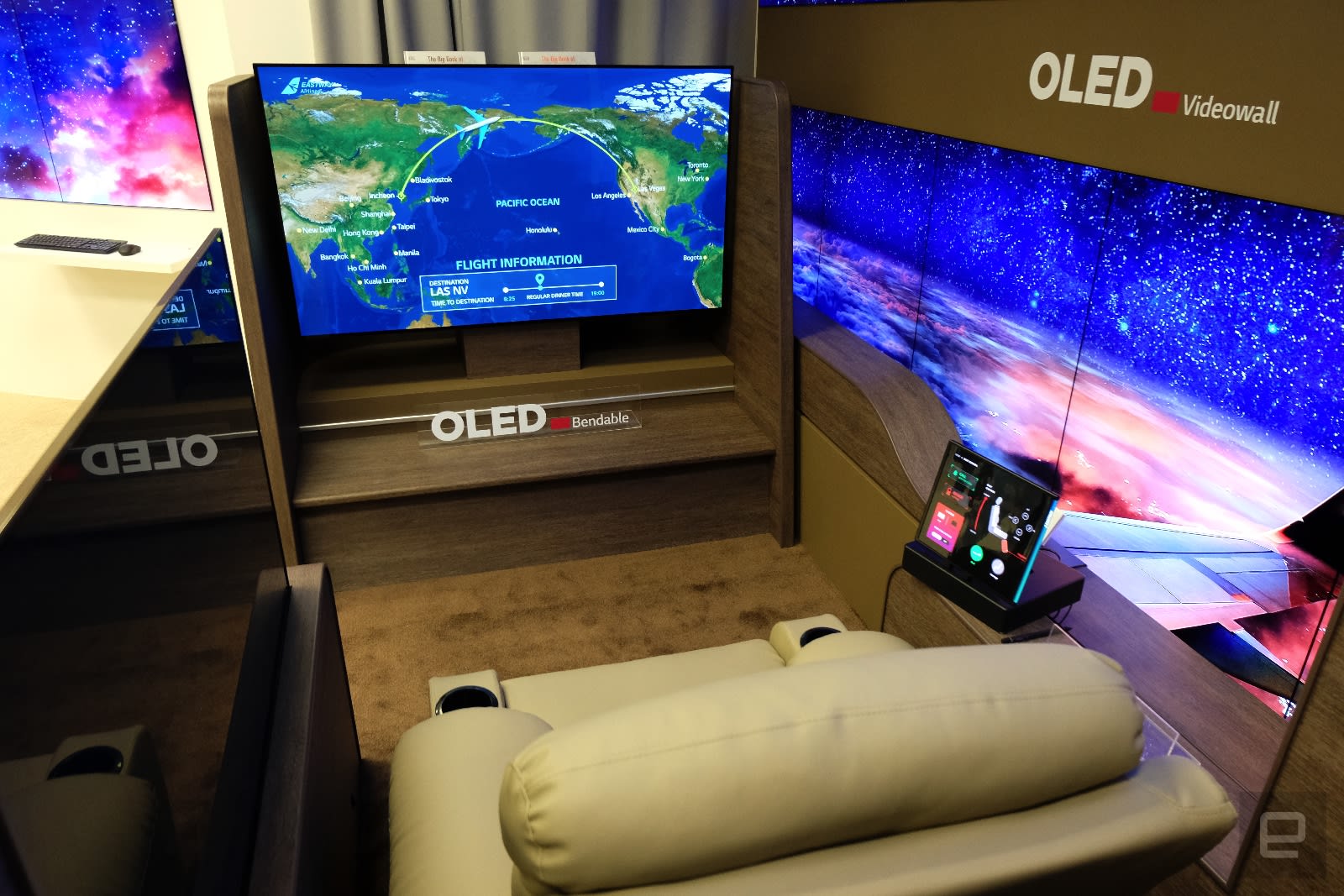
CES is the show for gazing at gorgeous, huge TVs from the likes of Samsung, Sony and LG, but if you want a teaser of things still over a year away, you have to book yourself into a private meeting with LG Display’s prototype showroom. It’s probably the quietest place in CES, with hushed LG executives walking around as our press group gets the tour, starting with a new rollable OLED TV.
LG Display decided to flip its initial rollable OLED prototype around. The new screen scrolls down from the ceiling or wall-based fixtures instead of creeping upwards from a long cuboid base.
The display tech itself appears to be the same. It’s OLED, it’s huge (65 inches) and it, obviously, rolls up. The engineering challenges are different, however. The posit is that by raising the housing above, it frees up floor space in your hypothetical house filled with conceptual tech.
Here at CES, LG Display had installed the prototype just above head height. (I’m 5′ 11″). When the TV was unfurled, it hovered at an unusual height substantially more elevated than most TVs I’ve seen in homes. If you install it at ceiling height, you’d be looking upwards an awful lot. That said, I’m sure some well-heeled home-owners (or their interior designers) could figure out where to put it.
This year, there was more focus was on where else it could bring its OLED screens — rollable, curved or otherwise. The most incredulous concept from LG Display was its inflight experience, involving a fuselage internally covered in OLED panels, a separate 55-inch transparent OLED that can display information or just turn it opaque for privacy. Then, and this might still be the silliest part, each fictional first-class cabin seat included a 65-inch bendable 4K OLED display. It can go into a curved mode for movies and games or return to flat for general flight information and duty-free goods.
With a 65-inch TV, the conceptual cabin has to be big, just to get a sensible space away from the thing. It’s a frothy concept of OLED excess, but the transparent screen is a smart implementation of LG Display tech.
A conceptual car ‘cockpit’ seemed more realistic. The wing mirrors were OLED touchscreens where you can adjust your view with a swipe; A central control panel has haptic feedback built-in so you can navigate menus without losing focus while driving; a multi-layered cluster combines two 12.3-inch POLED screens to show local traffic with a slight 3D effect. Then to top it all off, a 12.8-inch rollable OLED on the back of the driver’s seat acts as an entertainment screen for those sat in the rear.
I think the idea is to prove that LG Display doesn’t have to make huge hulking screens in order to sneak into our daily lives. Tight environments with design considerations need screens that will fit specific spaces or surfaces. Some of us might never buy a 65-inch roll-up TV, but more of us are buying cars with touchscreens and we’re flying with mediocre LCD screens mere inches away from our face — and anything would be an improvement there.
Follow all the latest news from CES 2020 here!
Author: Mat Smith
Source: Engadget




